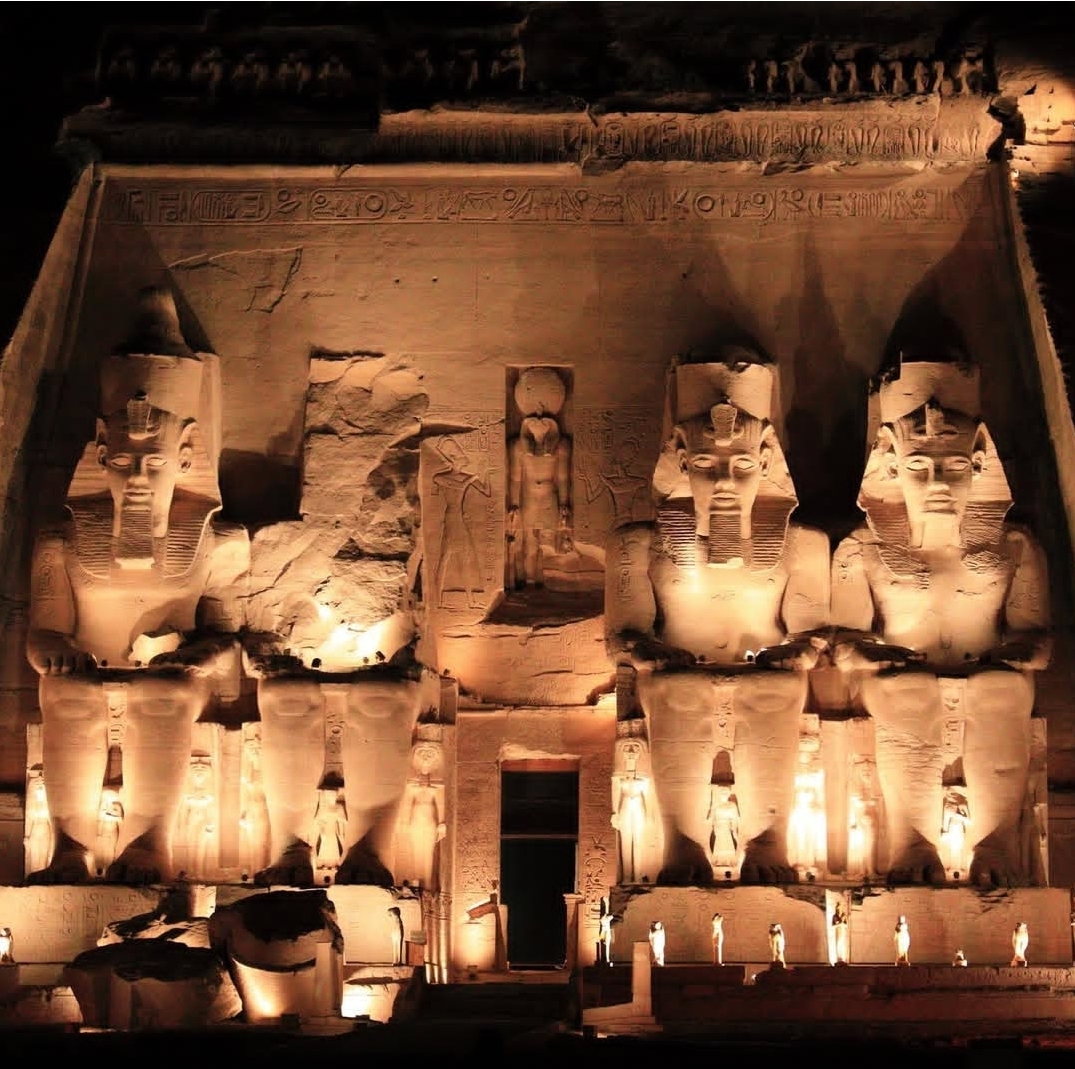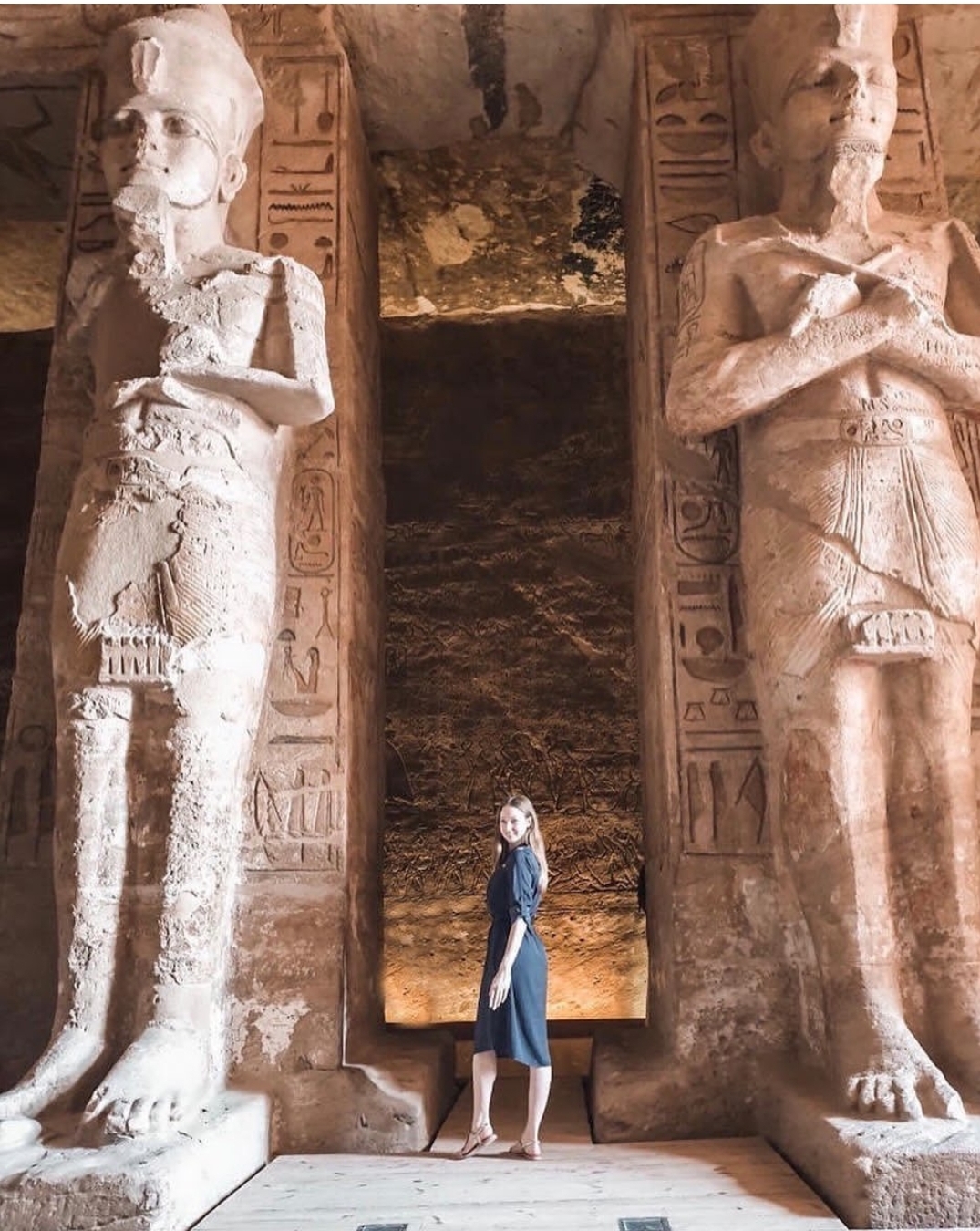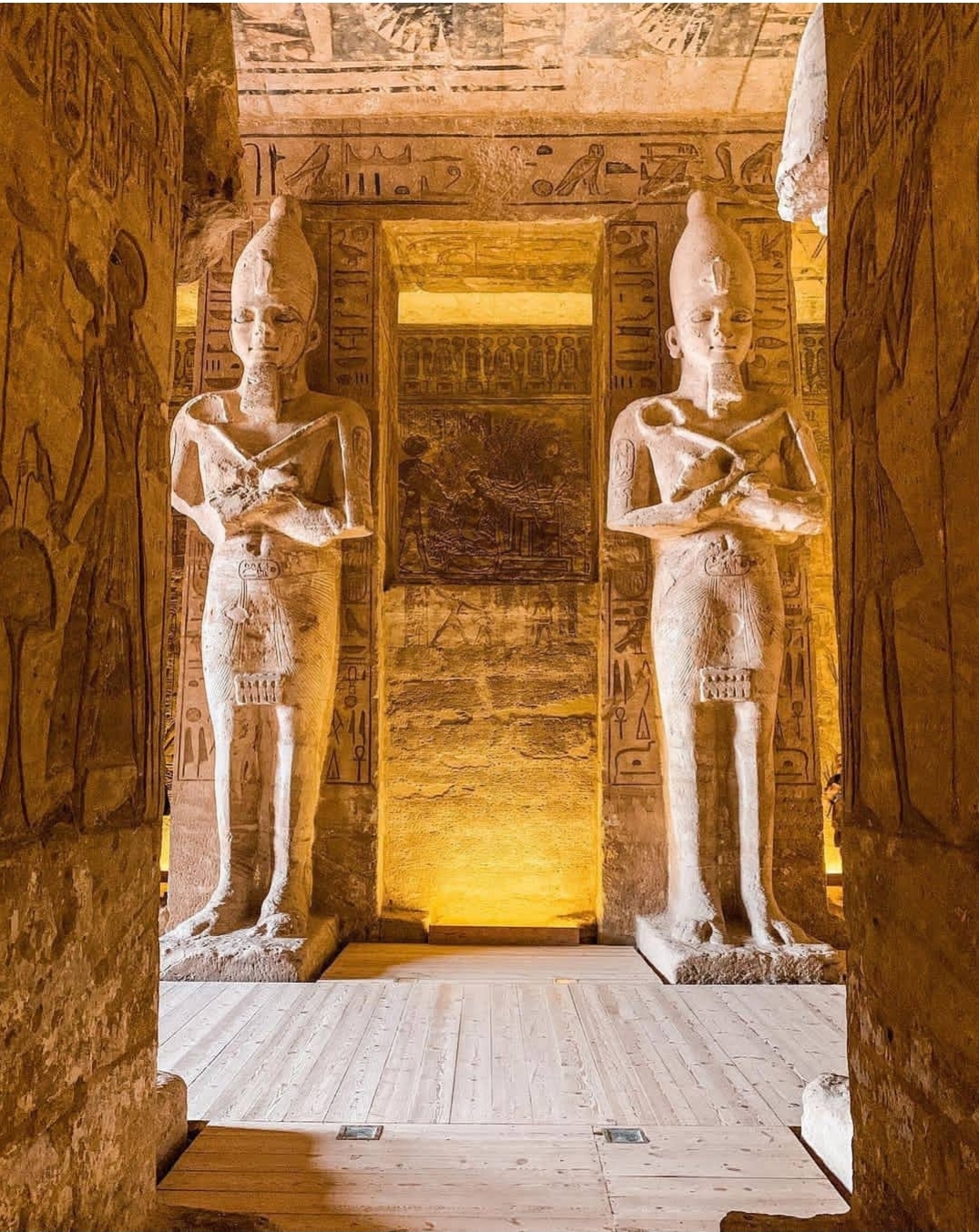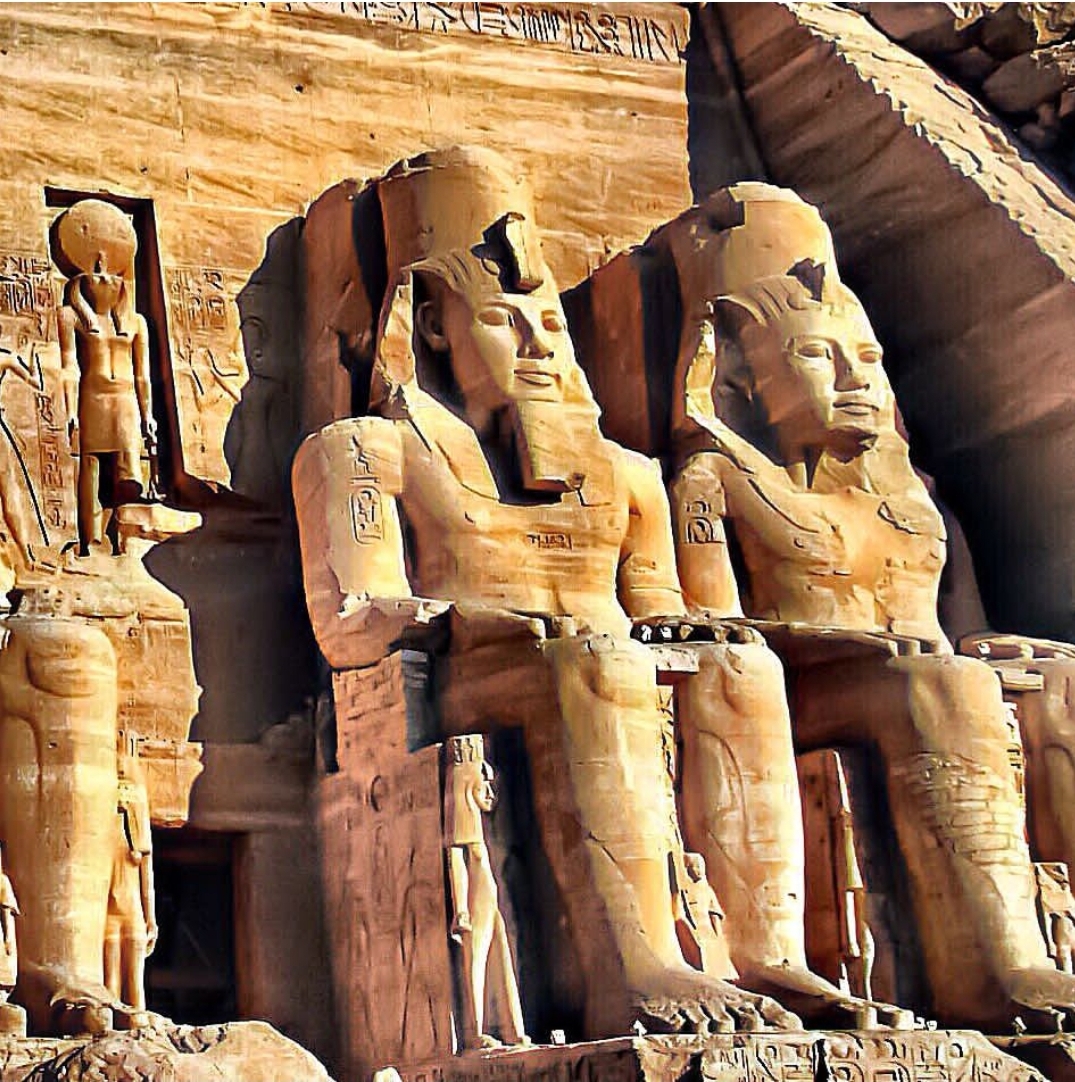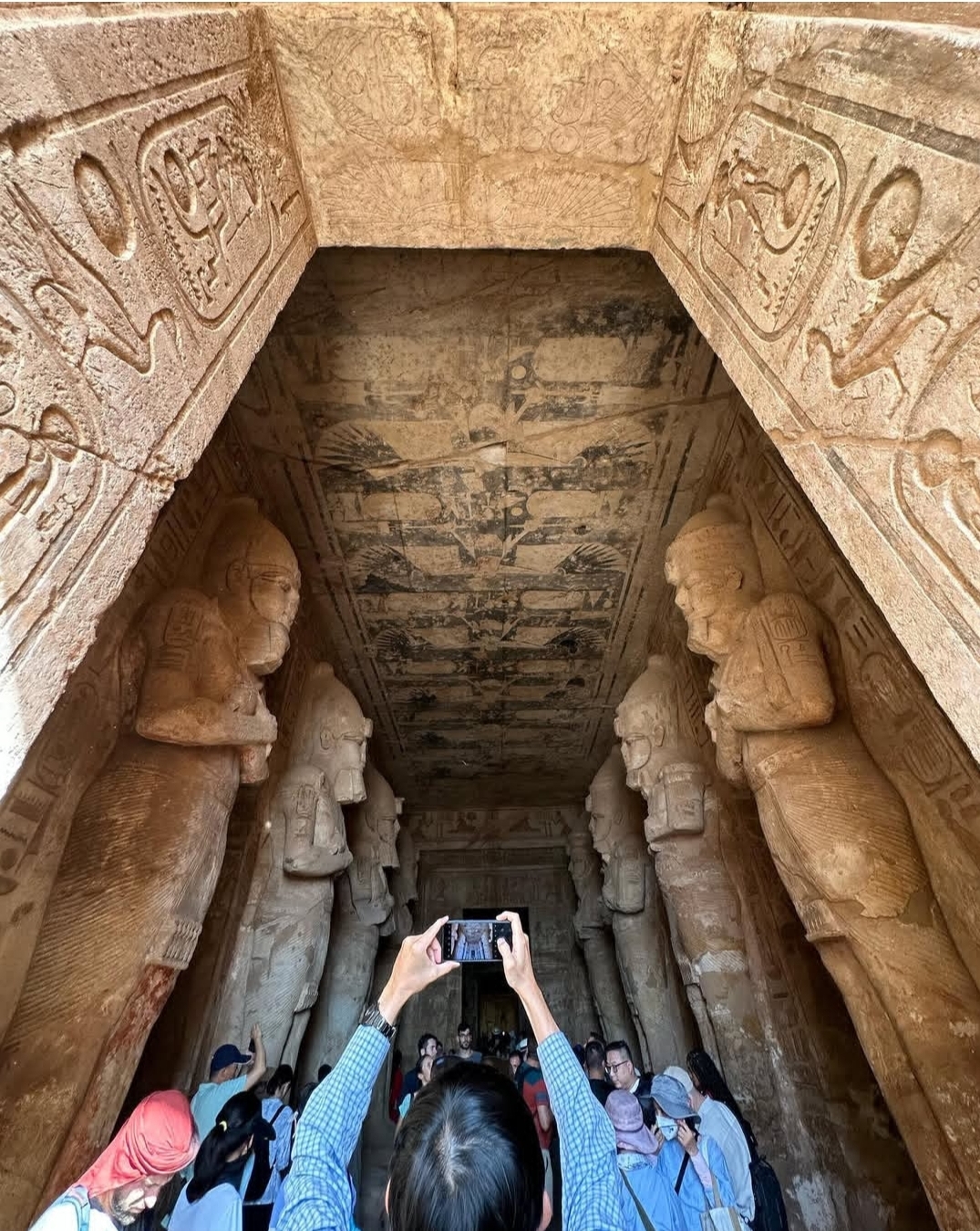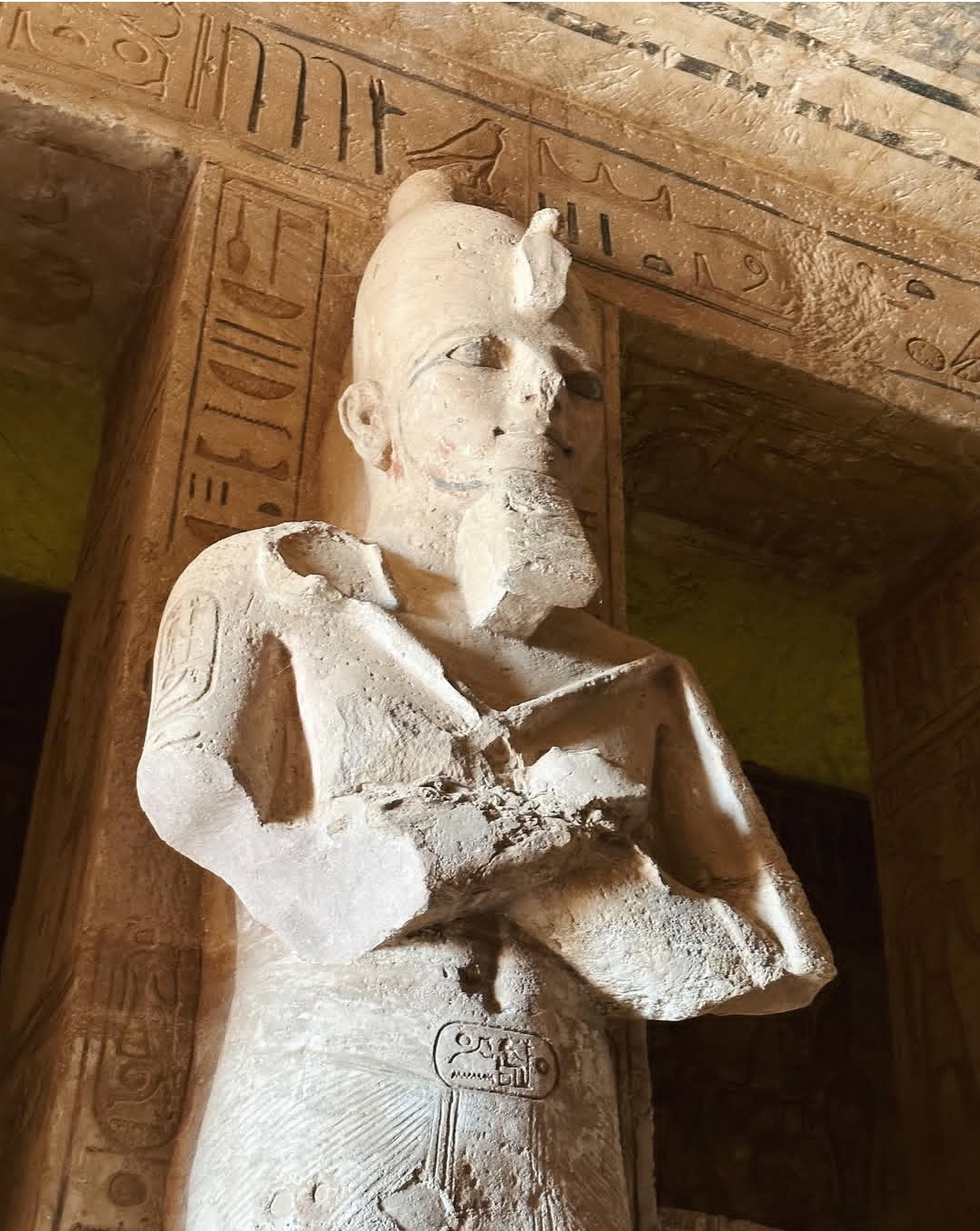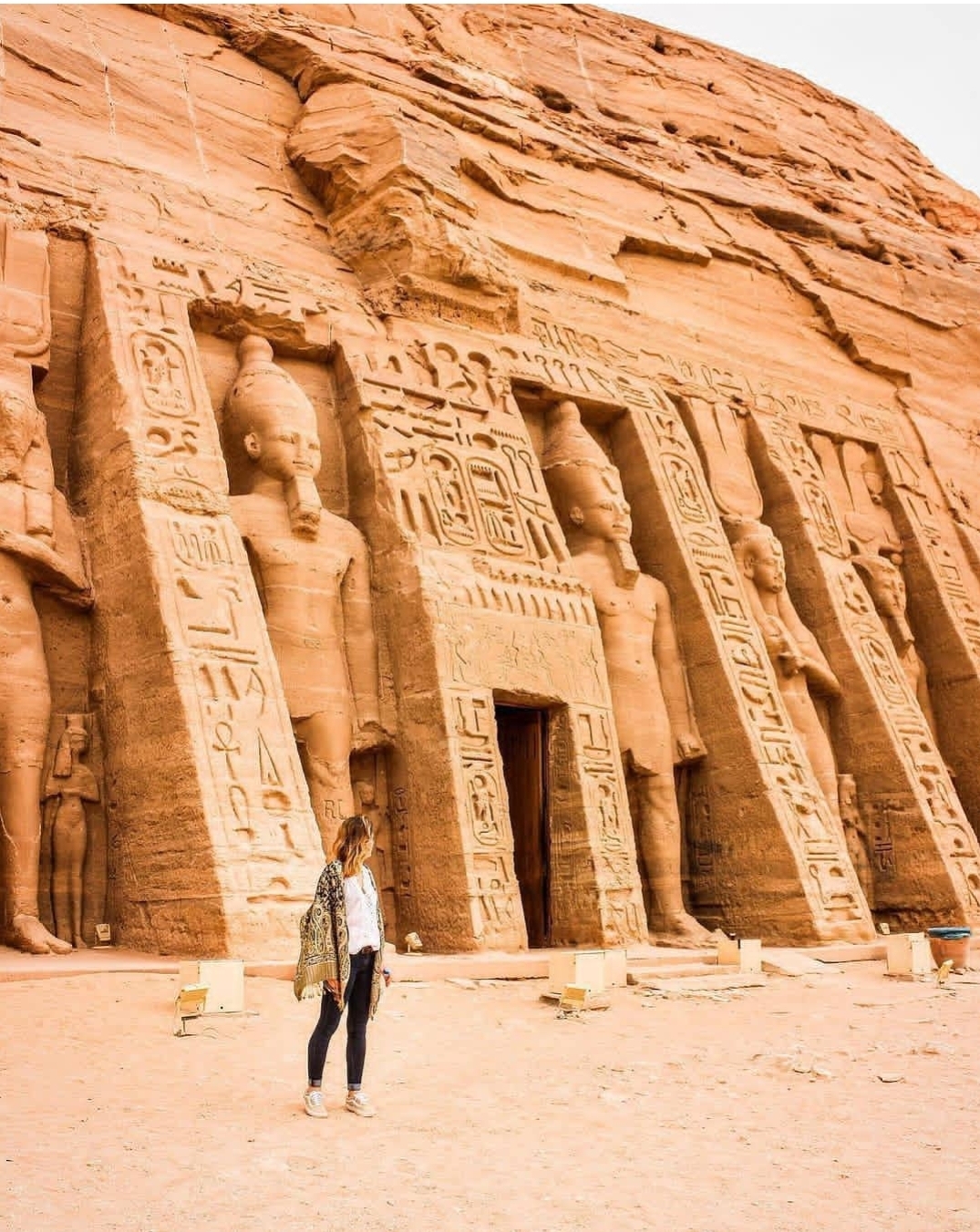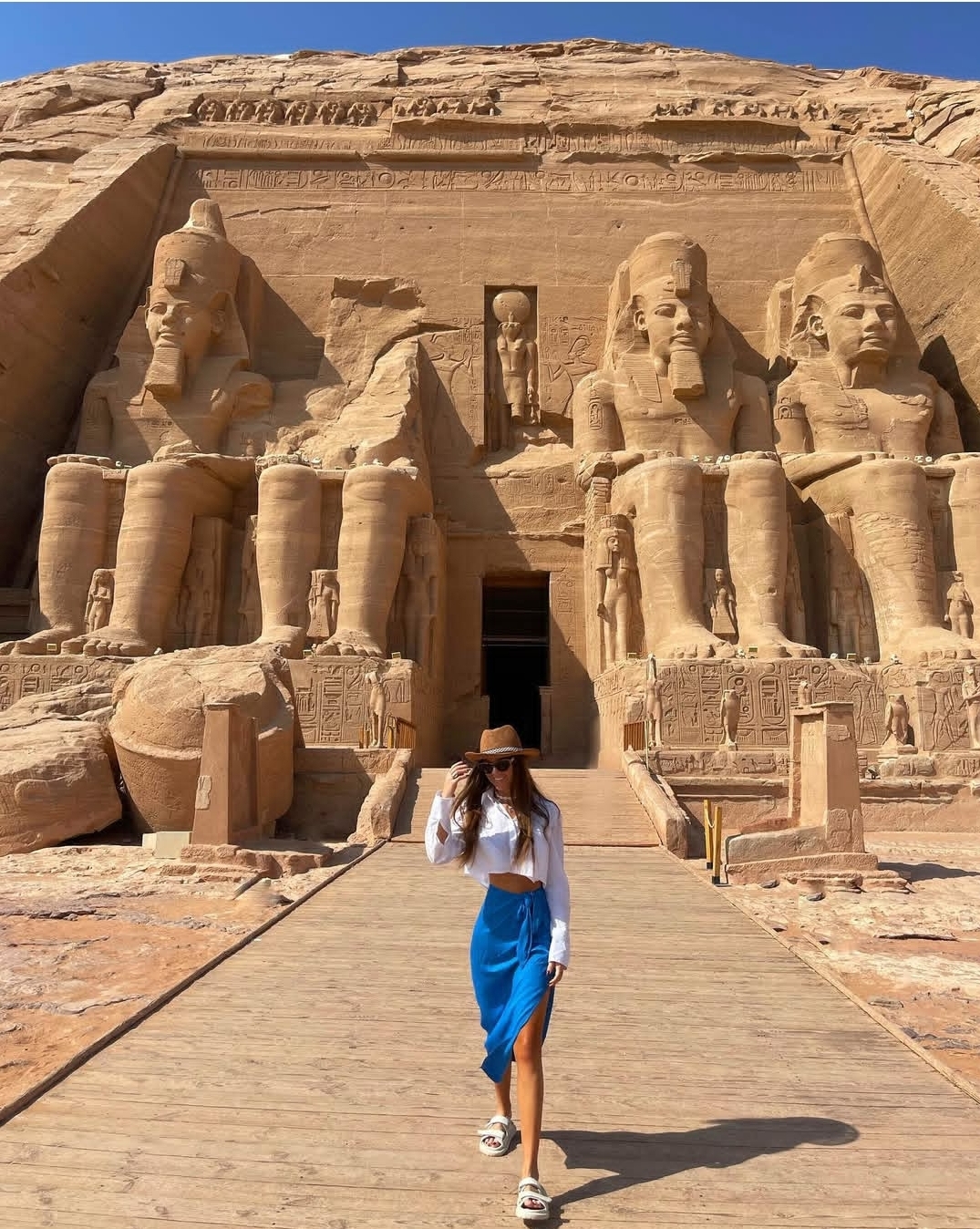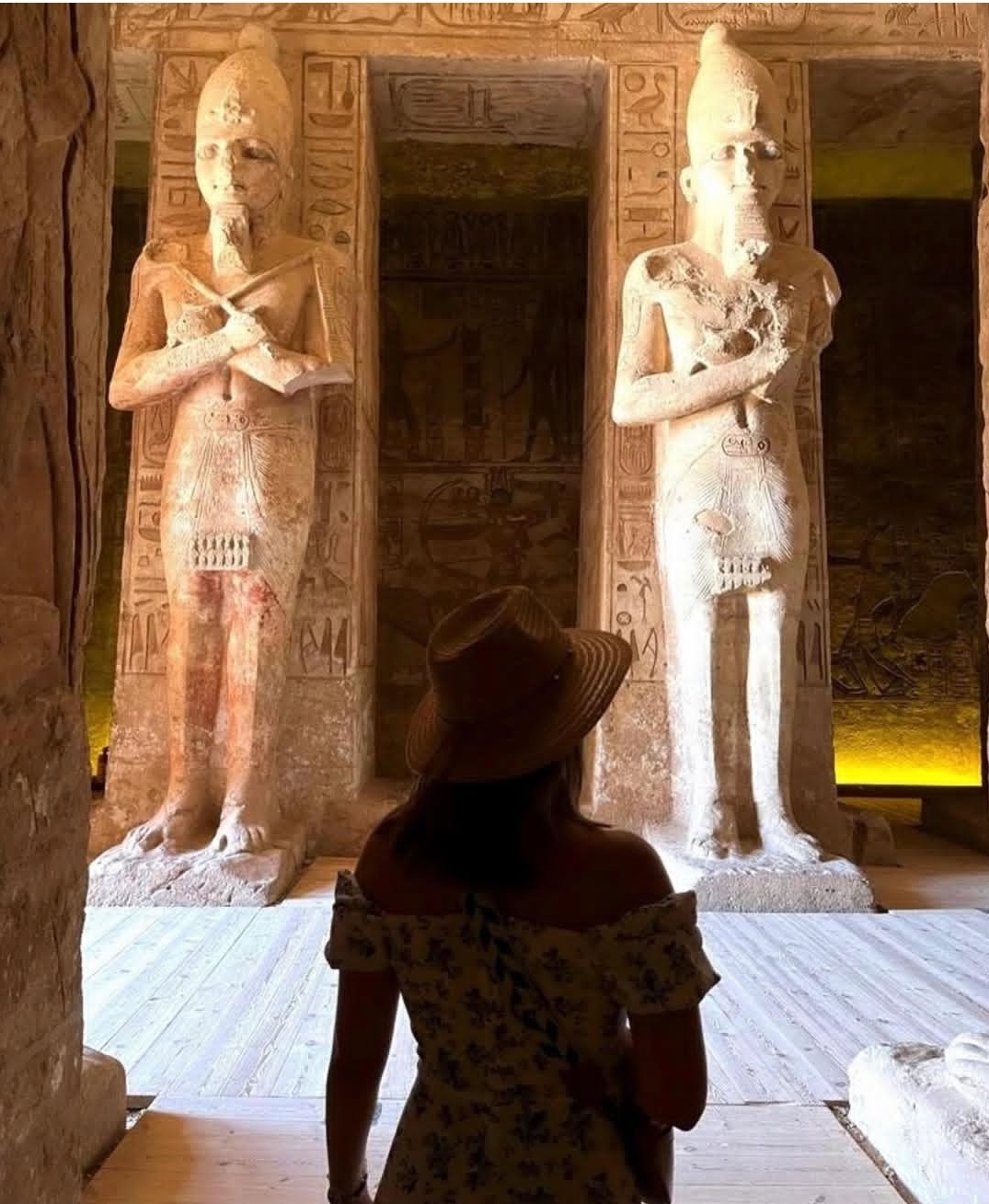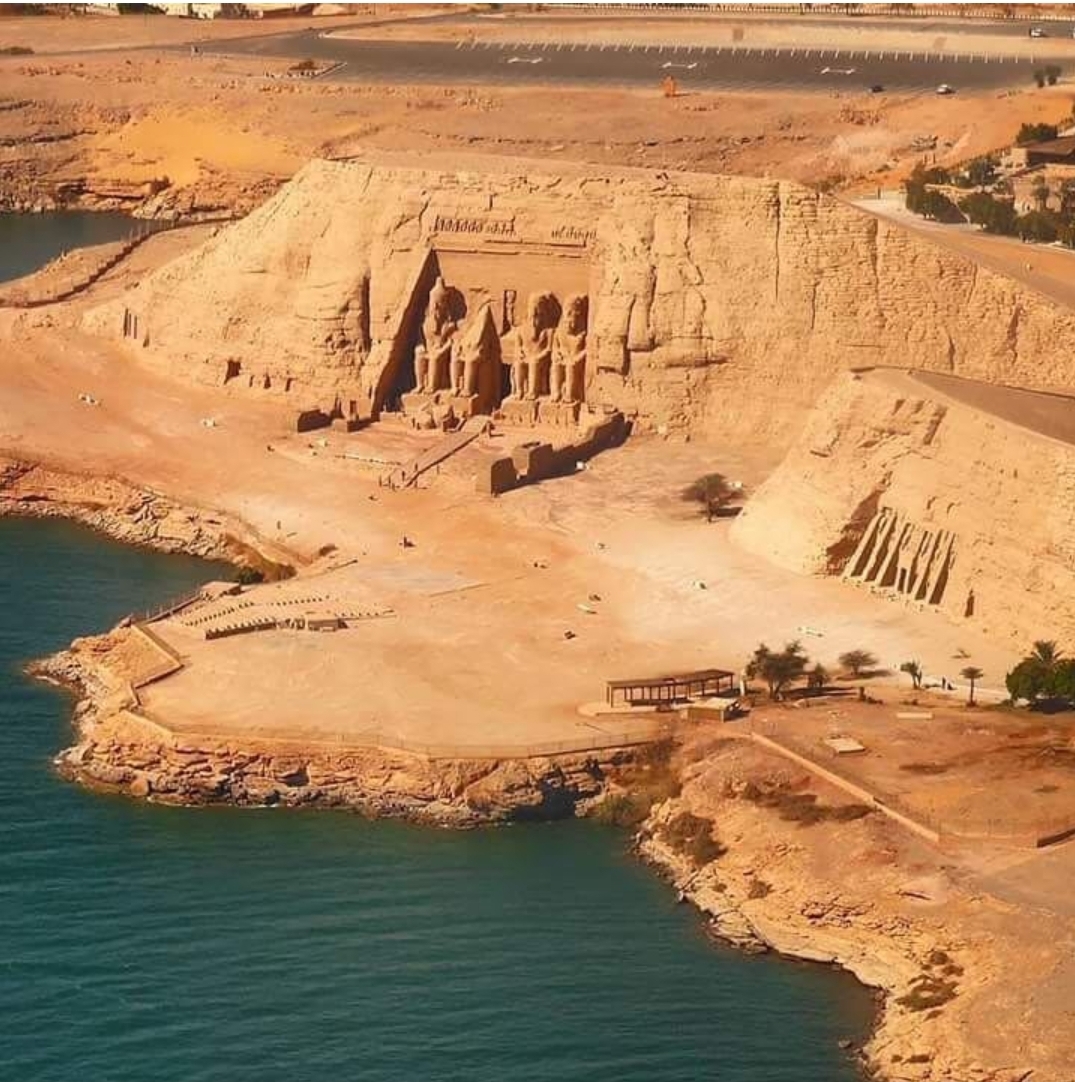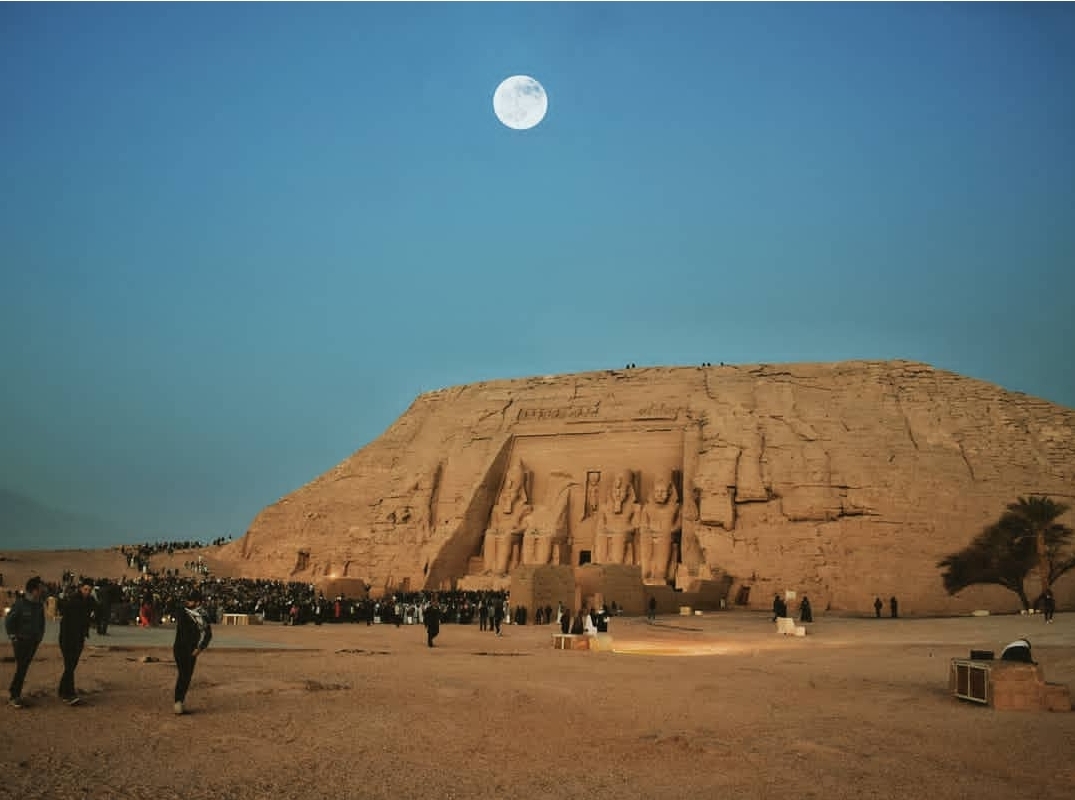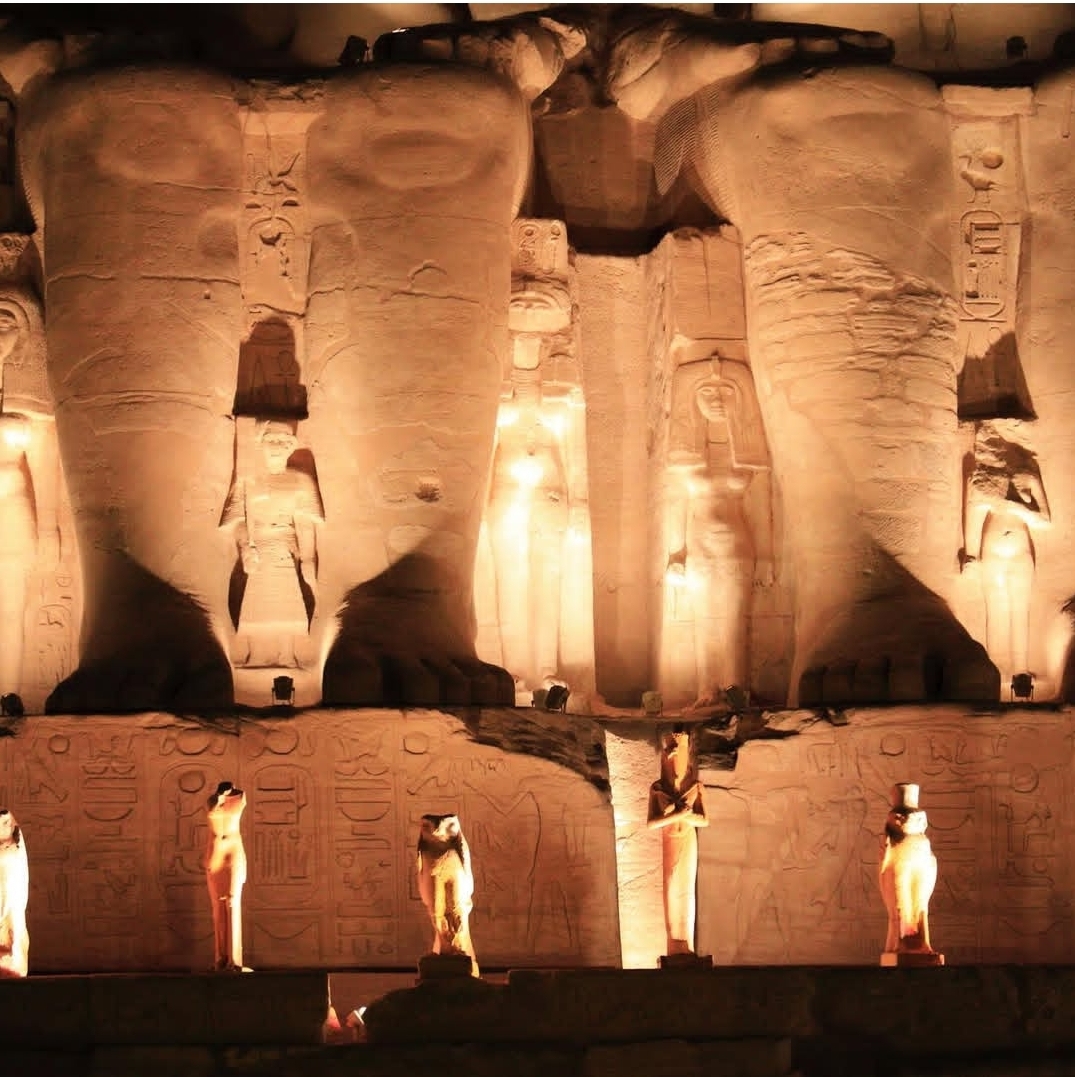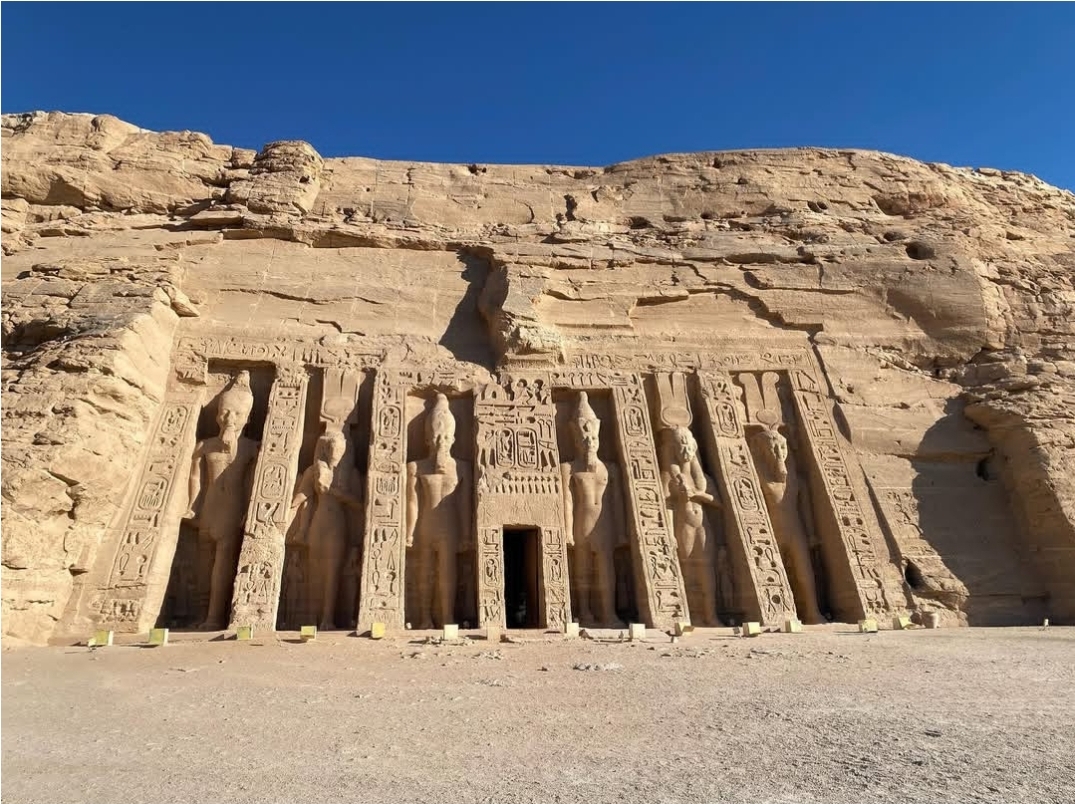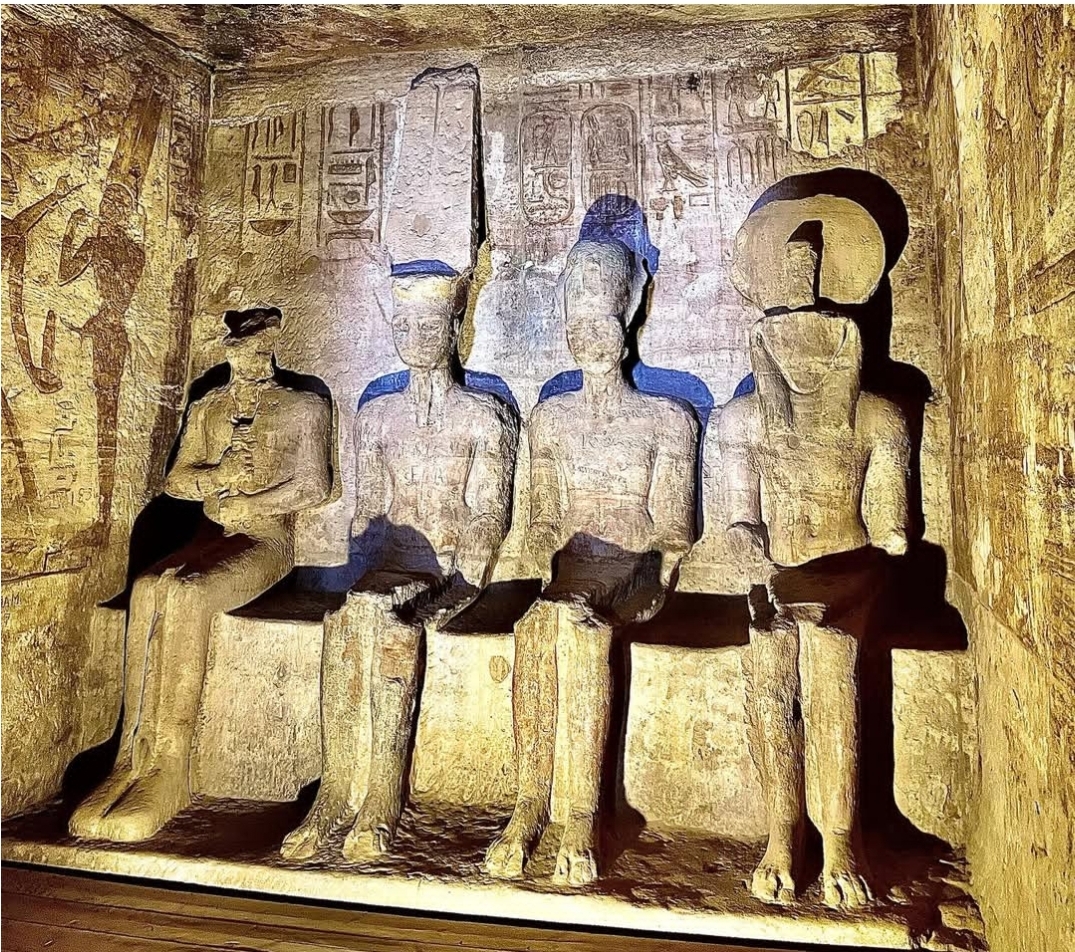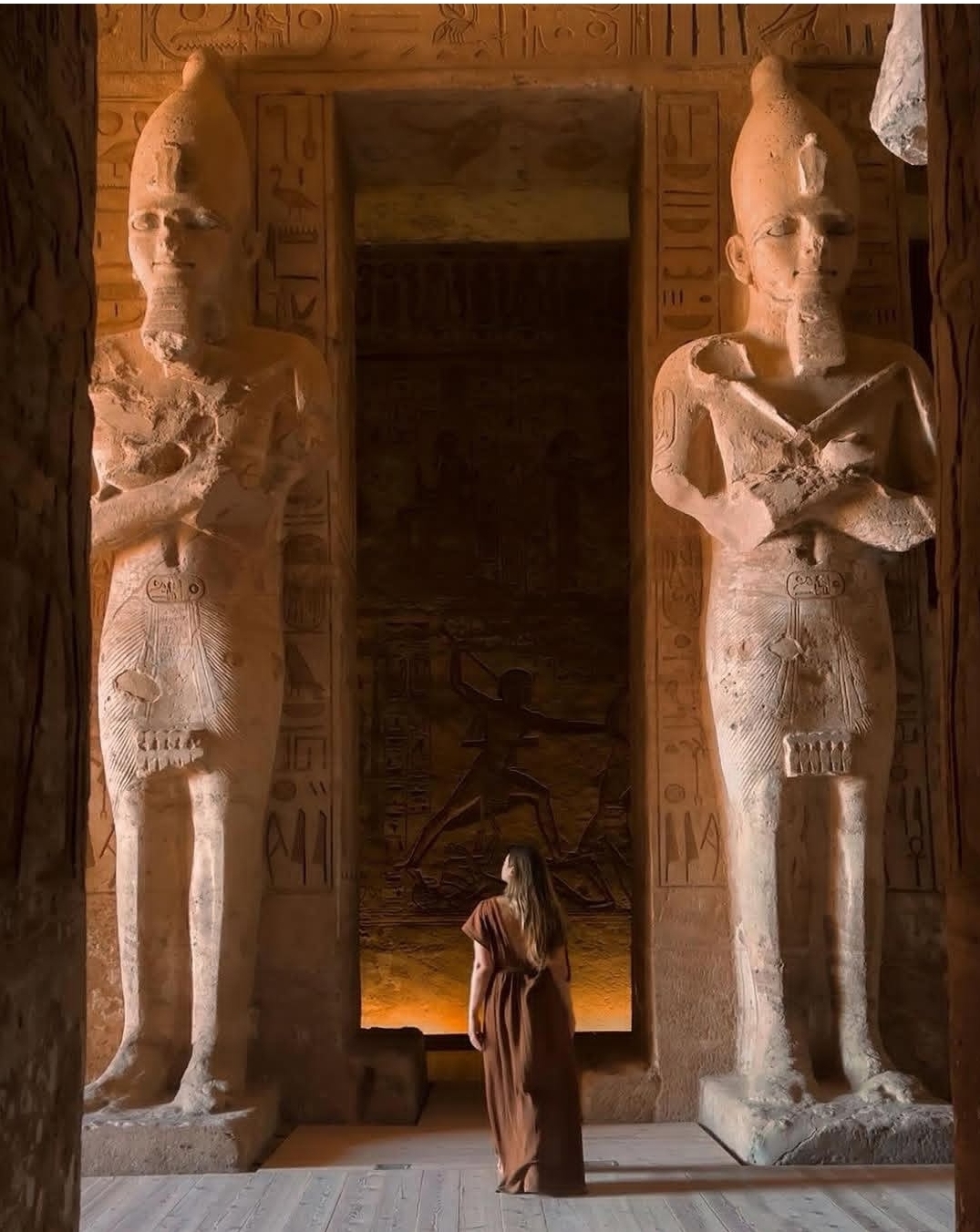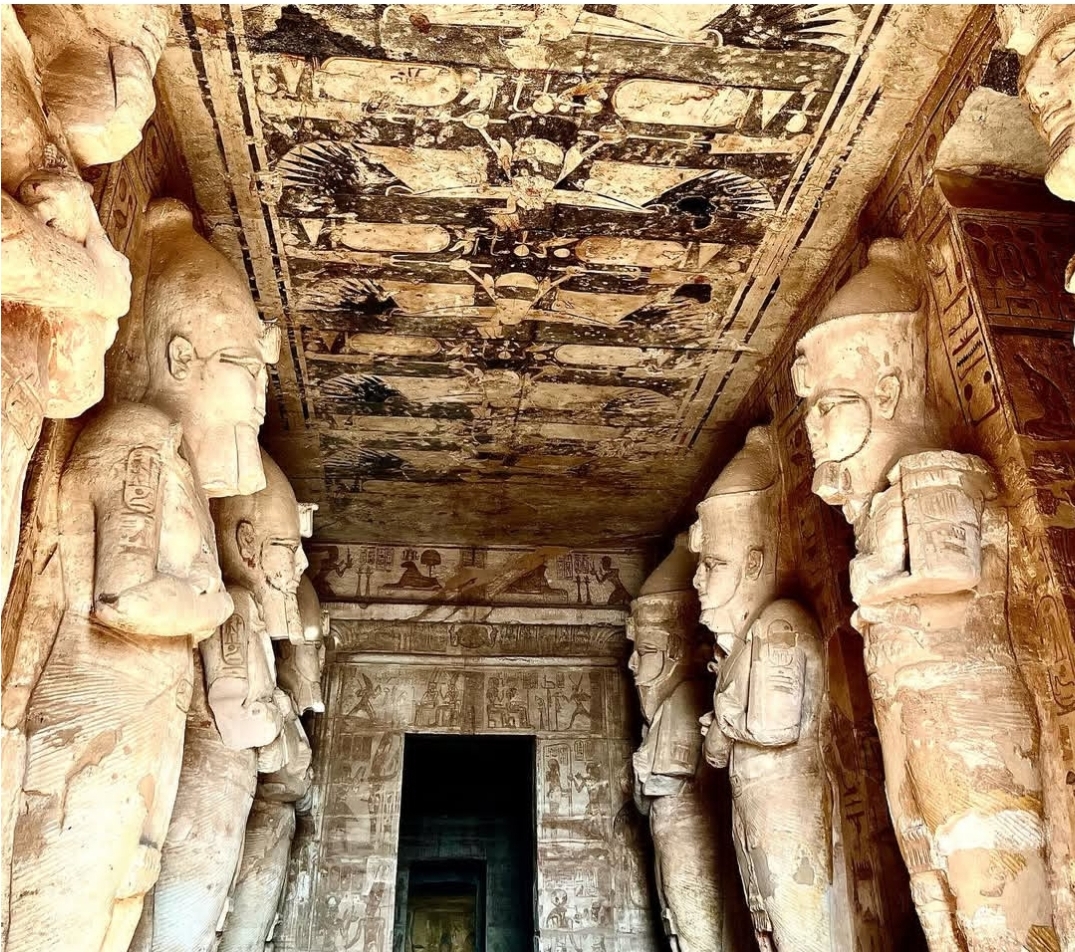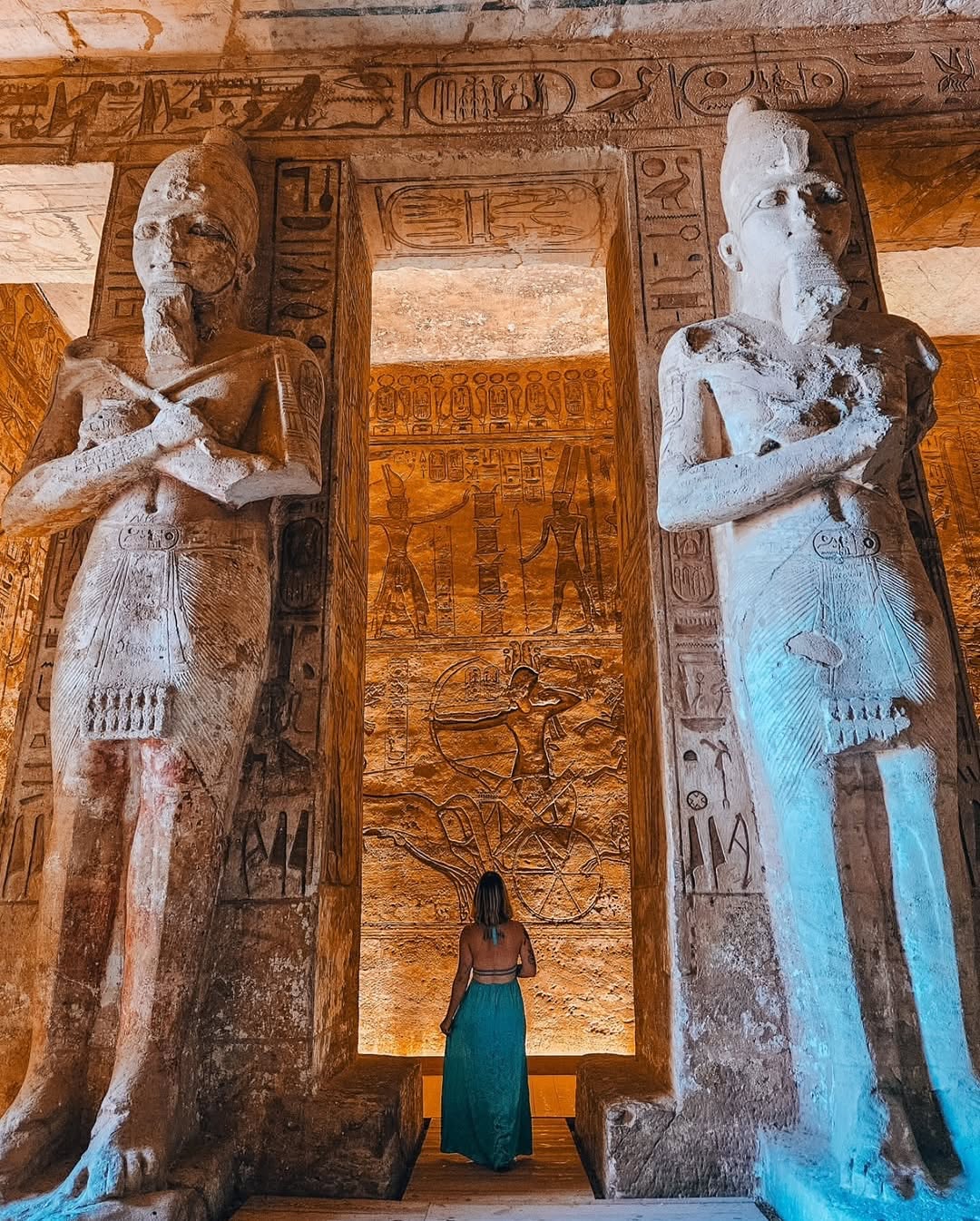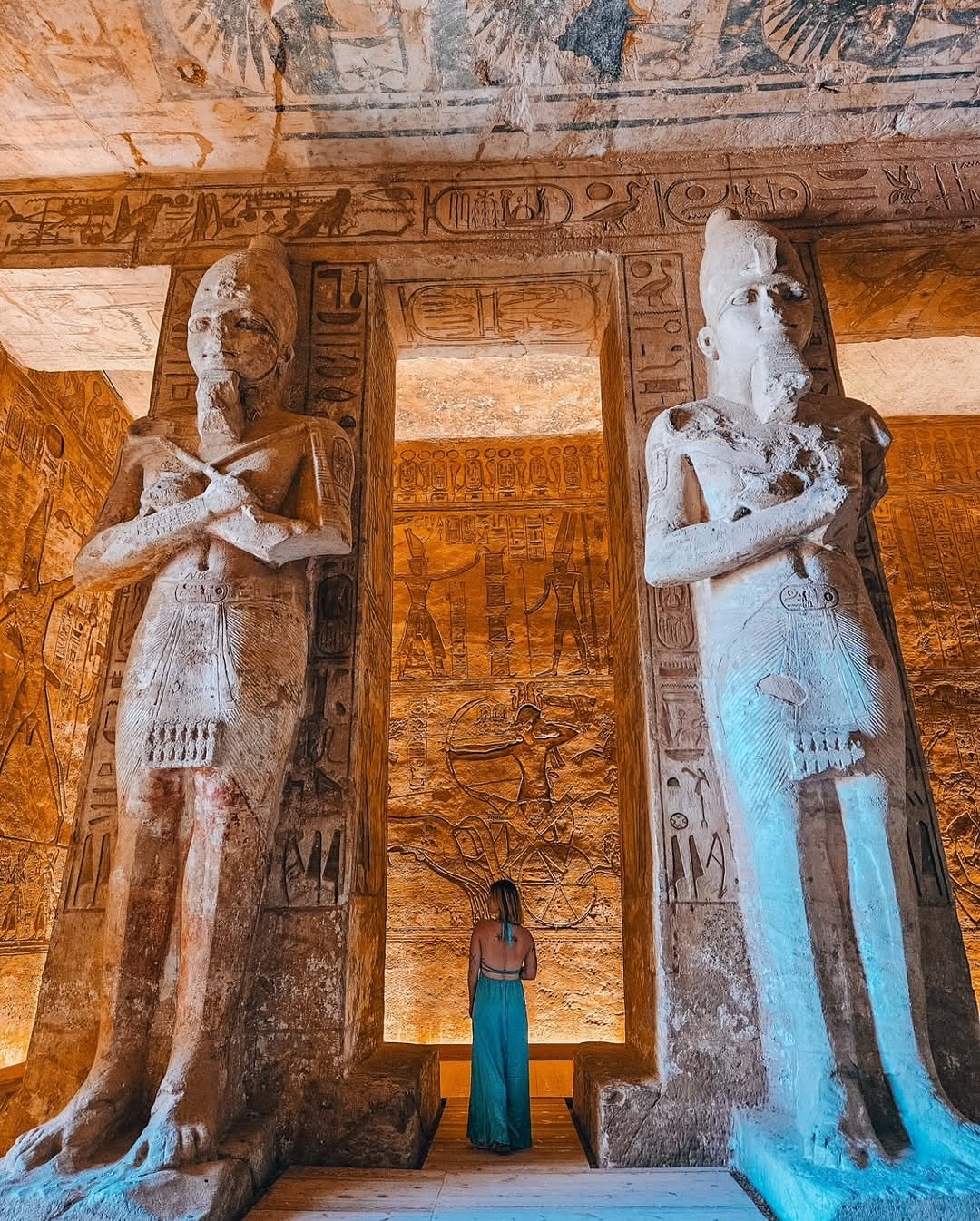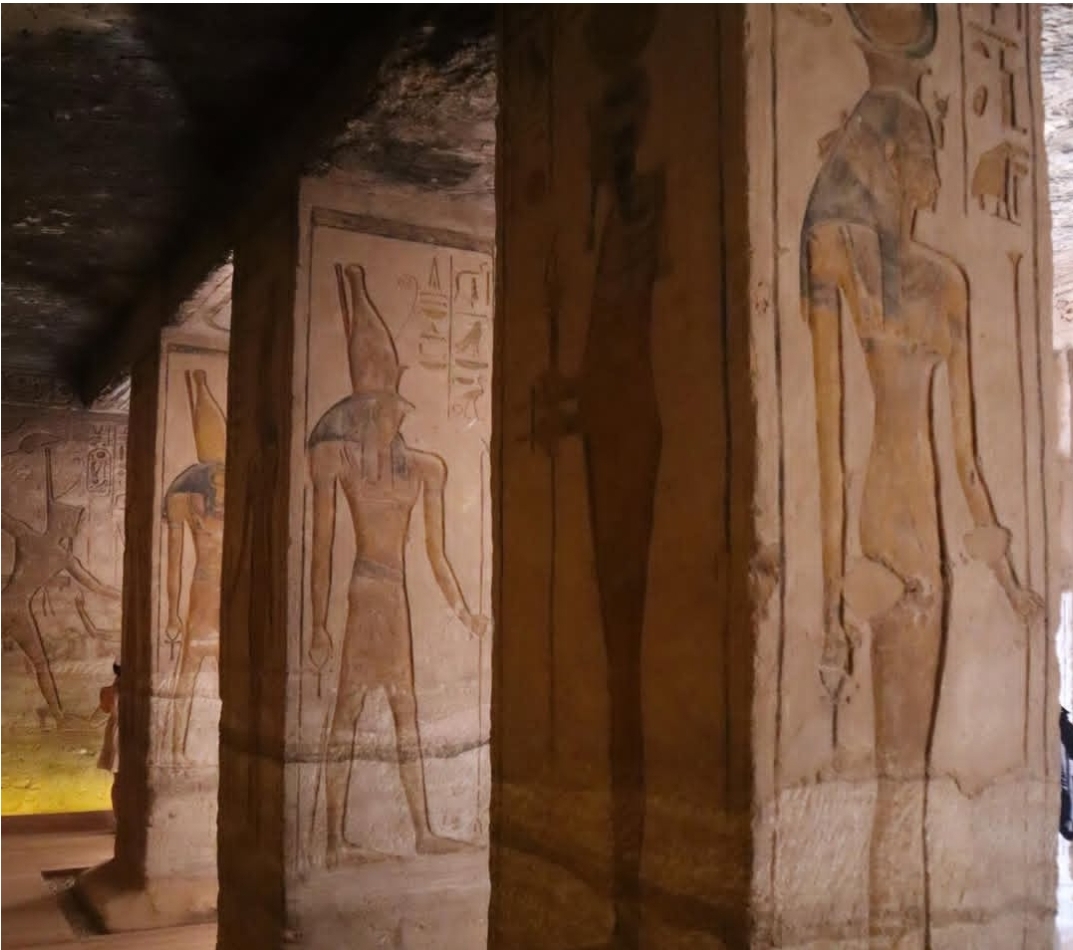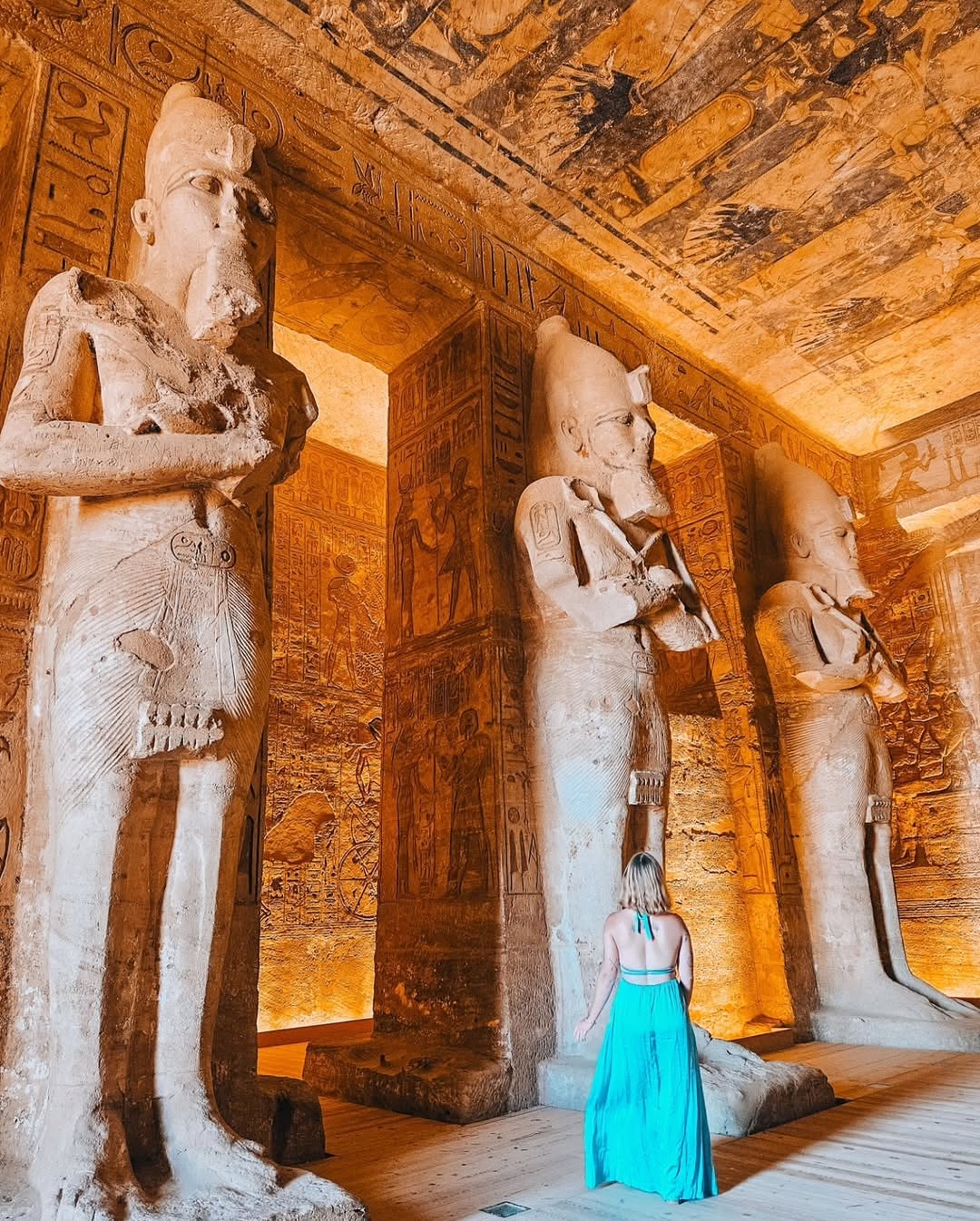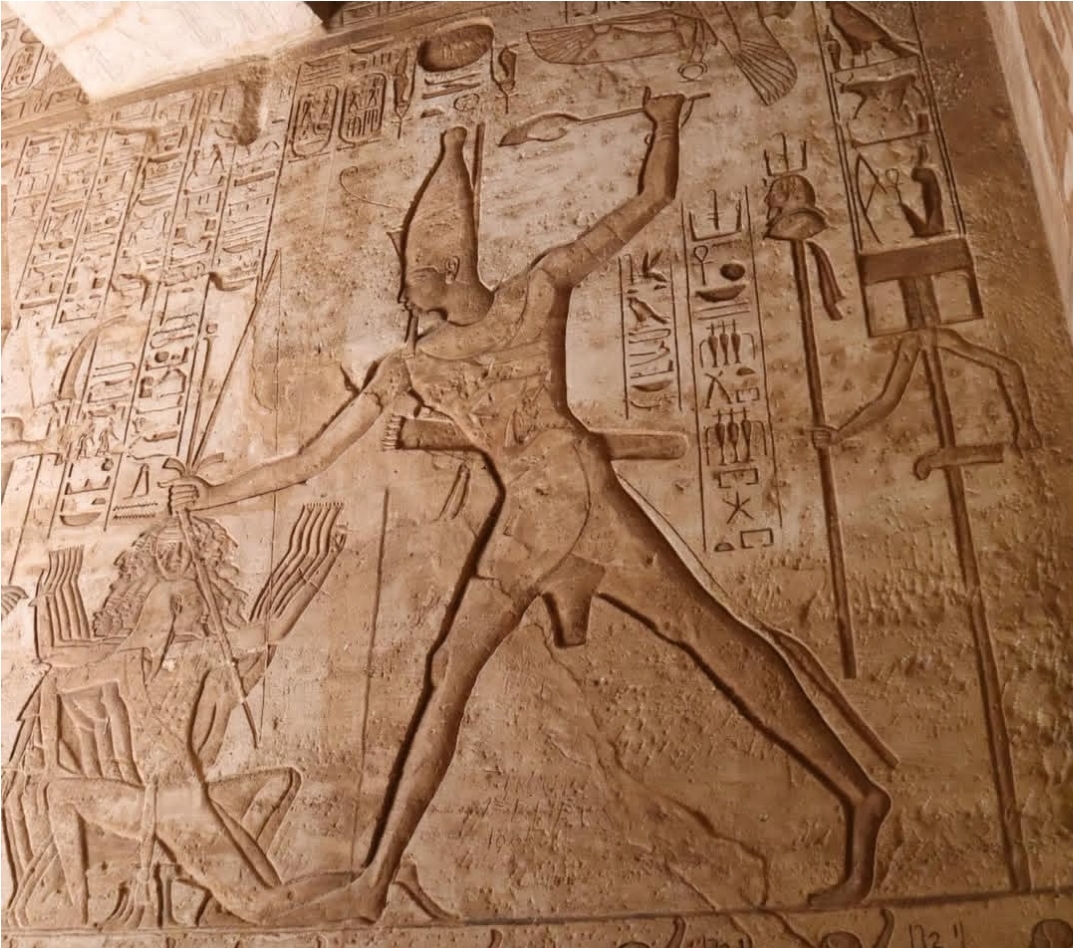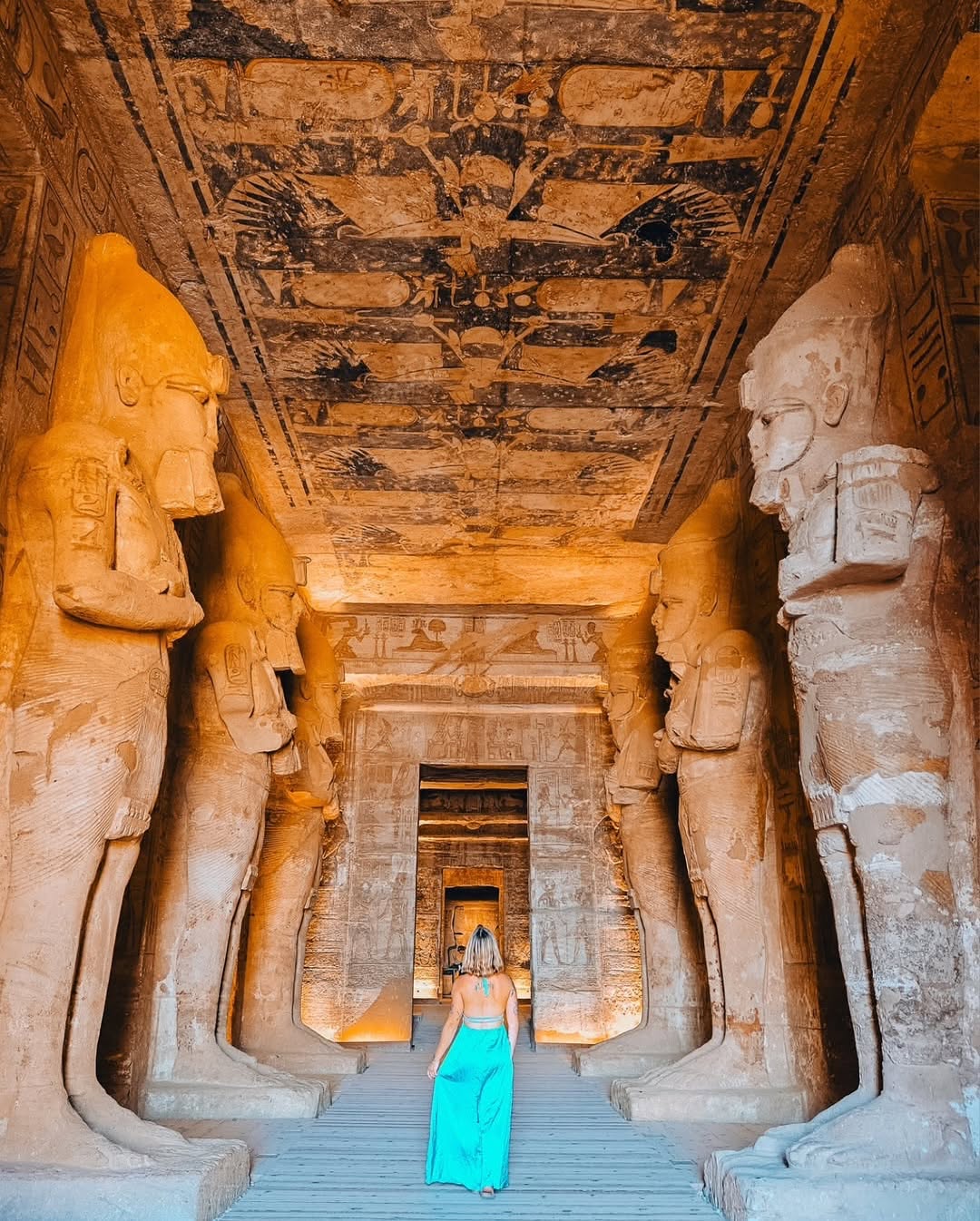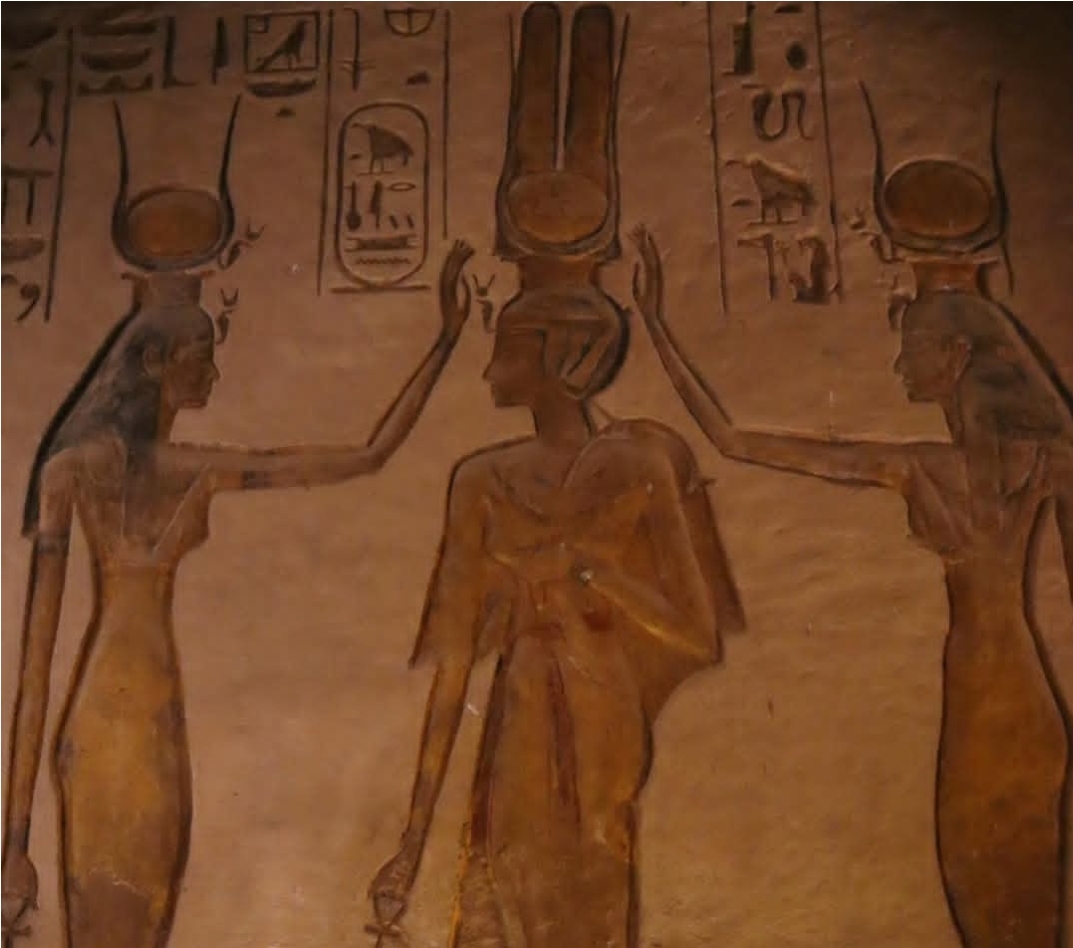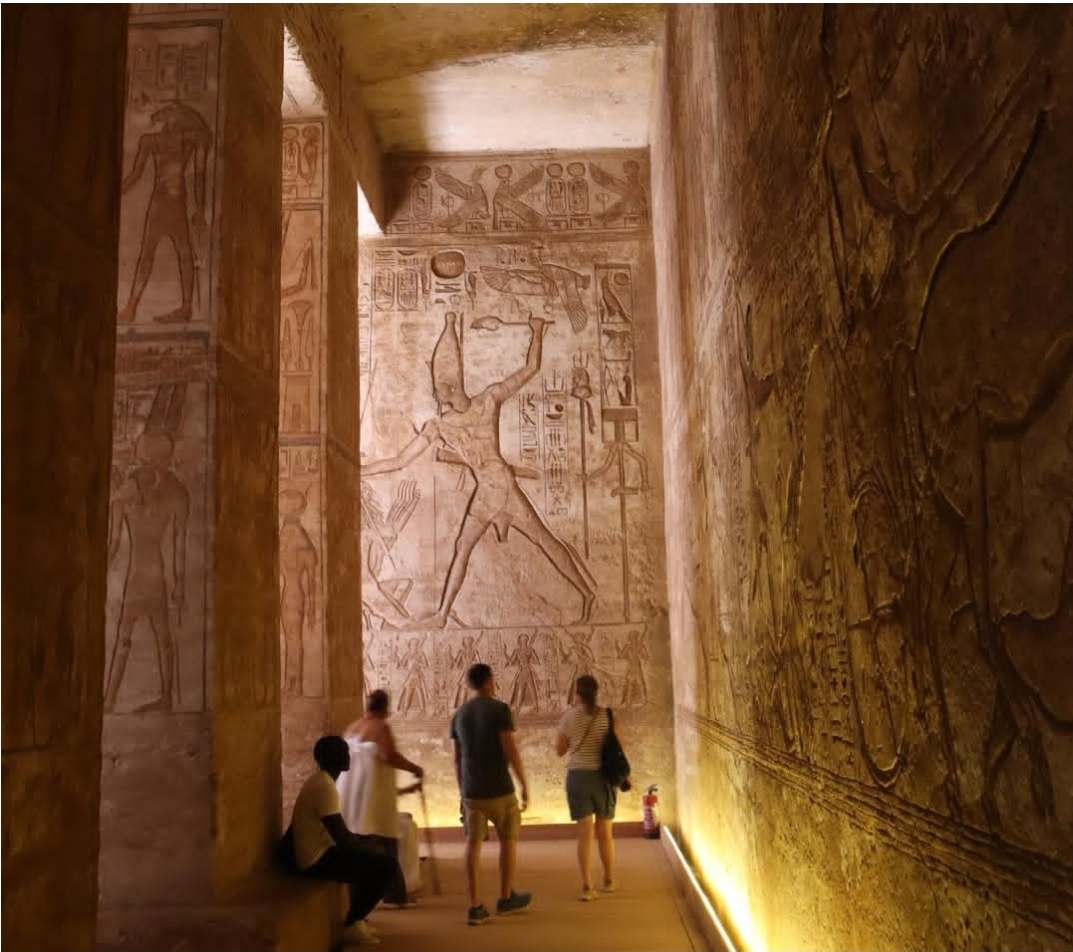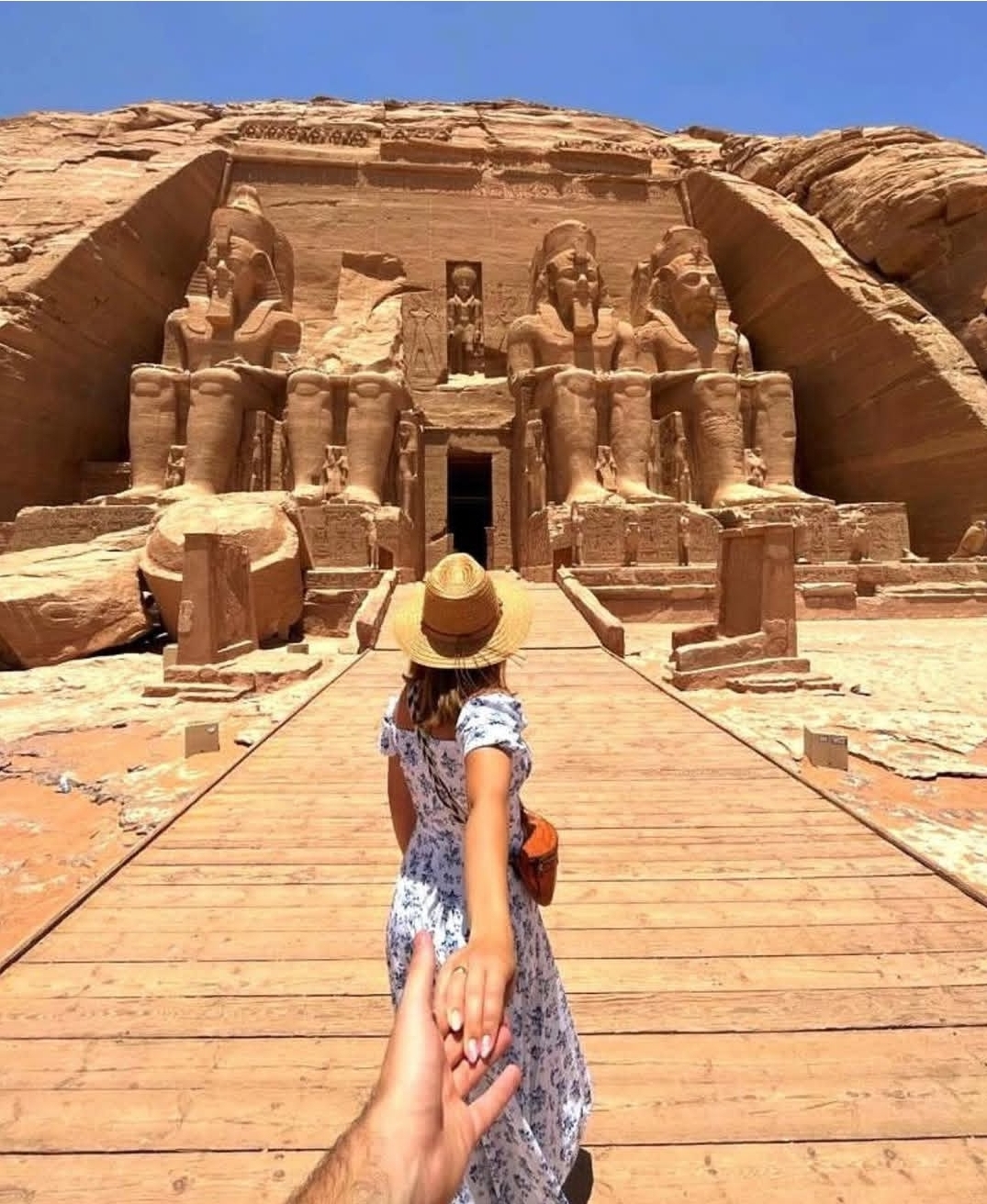Abu Simbel Temple Aswan
Abu Simbel Temple Aswan Carved into the golden cliffs of southern Egypt, the Great Temple of Abu Simbel stands as one of Pharaoh Ramses II’s most awe-inspiring monuments. This UNESCO World Heritage Site, relocated in a historic 1960s rescue mission to save it from Nile flooding, remains one of Egypt’s most iconic landmarks.
A Monument to Divine Kingship
Built in 1264 BCE during the 19th Dynasty, the twin temples celebrate:
-
The Great Temple: Dedicated to Ramses II himself (deified as a god) along with Amun-Ra, Ptah, and Ra-Horakhty
-
The Small Temple: Honoring Queen Nefertari as Hathor, making it one of few Egyptian temples dedicated to a queen
Architectural Marvels
-
Four 20m-tall seated colossi of Ramses II guard the entrance
-
Precision solar alignment: On February 22 and October 22, sunlight penetrates 60m into the inner sanctuary to illuminate three statues (the fourth, Ptah, remains in shadow as god of the underworld)
-
Hypostyle hall features battle scenes from the Battle of Kadesh
-
Inner sanctum contains four seated deities
The Great Rescue Operation
When construction of the Aswan High Dam threatened to submerge the temples:
-
An international team cut the temples into 1,036 blocks
-
Moved them 65m higher over 4 years (1964-68)
-
Reconstructed with perfect alignment to preserve the solar phenomenon
Why Visit Abu Simbel?
-
Witness the most spectacular example of ancient Egyptian rock-cut architecture
-
Experience the Sun Festival (twice annually) when the inner sanctum illuminates
-
See one of the greatest engineering feats of both ancient and modern times
-
Combine with a Lake Nasser cruise for a complete experience
Pro Tip: Visit at dawn when the facade glows red-gold, and before the midday crowds arrive from Aswan.
